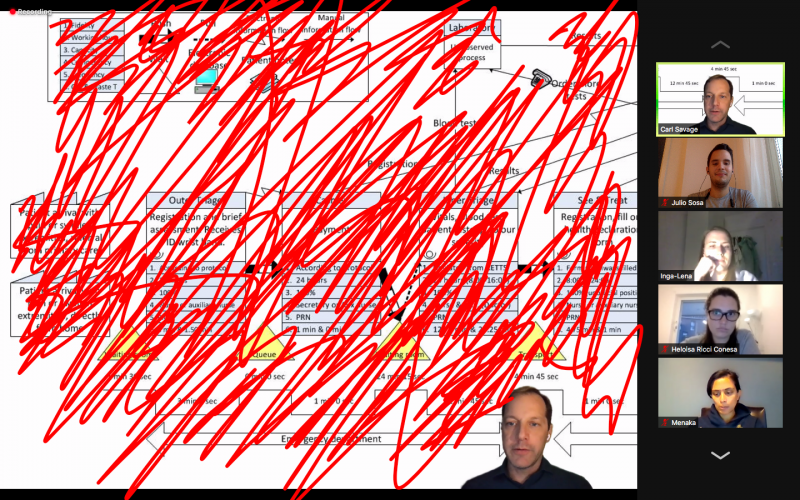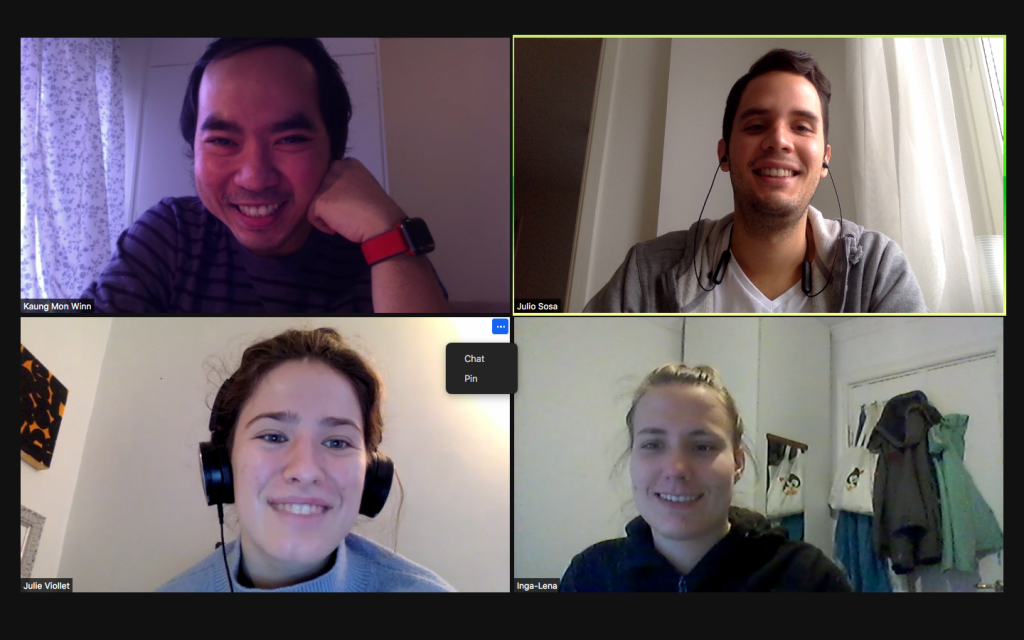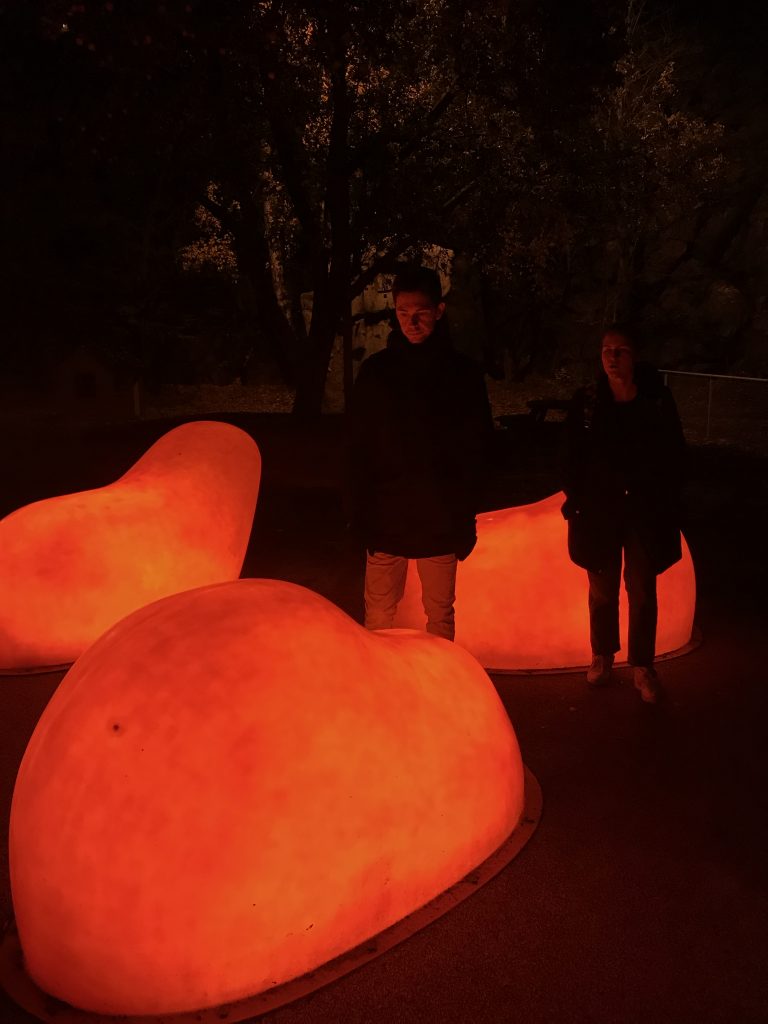
Advanced Health and Medical Care Management: a course review
Hej readers! The road has been a long one but we are almost there! This is the review for the last of our “advanced” courses in the Health Economics, Policy and Management programme. The course felt overall very refreshing because of its design. Moreover, the content is expected to be very useful in our future careers since it covers innovative and substantial topics.
Schedule
The course had a total duration of 4 weeks. One could say that the time was equally divided between individual studies and zoom sessions with your group or the whole class. Most of the teaching sessions took place in the morning, while time for group work was scheduled for the afternoon. The course was flexible overall since a big part of the required work depends on you.

Course design and content:
As expected, the course used an innovative approach for teaching, adapting from the first experience of distance learning during the Basic Management course (in spring) in the midst of the COVID-19 lockdowns.
Lectures:
While all lectures were pre-recorded and uploaded to our online platform, the zoom sessions were used only for case discussions and group dissertations. This dynamic helped considerably to promote engagement and an efficient use of time.
Zoom sessions:
Our teachers used the case study approach that is commonly used in top ranked business schools to teach this course. We were provided with a case to dissect firstly as individuals and then within our groups. We were asked to submit a summary of our group dissertations before the zoom session, so teachers could use them for guiding the class discuss1ion.

Content:
The topics covered during the course were the following:
- Value-based health care and its implications.
- Operations management applied to health care.
- Clinical process design, planning, and improvement.
- Methods for analyzing the improvement of processes.
Structure:
The course was structured in four models just like the basic management course.
The first module was titled “process management“. Here we discussed mainly (1) the concept of value creation in health care and (2) how to understand and deal with variation in healthcare. This module was the most dense since it covered topics like process mapping, Lean and Agile process management, Time-driven activity-based costing and Statistical Process Control charts.
Module 2 was about learning health systems. This module focused on how health systems can be expanded to focus on learning. Here we discussed the learning process of individuals and how to translate that into organizational learning. We also learned how to construct and analyse business models and discussed improvement in physician’s leadership.
In the third module we learned about complexity in healthcare and how to approach it. Here we concentrated on change management and how to tackle resistance to change within organizations. Lastly, module 4 served as a wrap up for all the content covered in the first 3 modules.
Professors:
The course was directed by the amazing duo of the medical management center at KI:
Carl Savage (PhD): Co-director of the Clinical Management research group, current deputy director for our master’s programme and incoming programme director (2021).
Mats Brommels (MD PhD): Chair of the Department of Learning, Informatics, Management and Ethics (LIME) and the Director of the Medical Management Centre (MMC) at KI.
Several PhD students and researchers joined Professors Savage and Brommels in some lectures and seminars. The professionalism and experience of all members of staff was very inspiring.
Evaluation:
Similar to our previous course, teachers wanted us to focus on learning instead of grades.
- The group evaluation consisted of a continuos working dynamic in which we submitted the summaries of our group discussions. We were also asked to identify and analyse variation within an emergency department in Stockholm (using real data). Finally, we were asked to reflect on our first assignment in the programme, all the way back to the Introduction course, in order to discuss how would we approach the task after completing most of all the courses.
- The individual assignment consisted of an essay in which we were asked to reflect on the generalizable lessons that can be learned from the cases, workshops and lectures. We were provided with specific recommendations on how to integrate the knowledge acquired. This was facilitated by our summaries of the case discussions that were made as part of the group work. I can say that, as usual with Prof. Savage and Brommels, I really enjoyed doing my evaluation since it really helped me cement my take-home learning messages.

Class insights…
Julie Volliet (France):
What did you like about the course?
I really enjoyed the variety of the topics that we were taught. The case teaching really brought it home for me. It was great to see some applications of the theories we were studying. Although it was challenging at the beginning to get used to the new case teaching format (which actually also made it great), it was really rewarding to learn a new way of seeing things! I also always love the energy of the course leaders who really make their topics of interest fascinating. Lastly, I liked the emphasis on personal development and had a great time writing the reflective essay about my own experience of the course. There are many things I will bring forward in my career including my favourite topic of complexity theory.
How was this course different from the “Health and Medical Care Management” a course in spring?
The course really felt like it was taking things to the next level in terms of discussion level. The case teaching was a new approach. I appreciated that it was less focused on one big group work task with more discussions within groups instead. Arguably the topics covered were more varied. However, this also meant that we had less of a deliverable of having done research like last time. It was more application- than research- and methodology-oriented I believe, which I liked. It was also much more flexible in terms of digesting the content at our own pace, which was great in times of corona.
Yingtuo Zhu (China):
What did you like about the course?
The course was designed with a thoughtful approach. With a clear structure and real-life cases in this course, I understood how to practice as professional staff in the medical management area. From process design, clarify the responsibility at all levels relevant to the healthcare systems, and evaluate the healthcare systems with qualitative and quantitative methods.
But I think there are still many things I have to learn in this course. For me, I still need more time to master all the knowledge in this course.
How was this course different from the ‘health and medical care management’ a course in spring?
The most different thing between the management course in spring and autumn is the area they focused on. The course in spring was more focus on the basics level of the healthcare systems. We did case studies based on six blocks in healthcare systems and learned how healthcare systems work. But the course in the autumn, we had more classes focusing on designing and improving systems. The course not only thought us how to improve patients’ experience, but also thought us how to build an excellent working environment for healthcare workers which is also an essential factor in enhancing the functioning of systems.
Hope you enjoyed the review! Please do not hesitate to contact me if you have any questions.
Yours,
Julio Sosa.
email: julio.sosa@stud.ki.se
Linkedin: https:/www.linkedin.com/in/julio-sosa-maldonado-659301175/
Instagram: @julio.sosam

0 comments